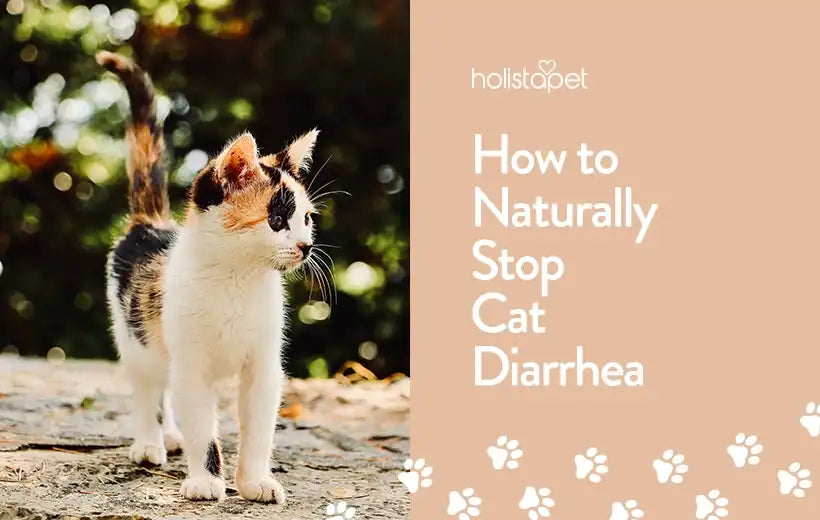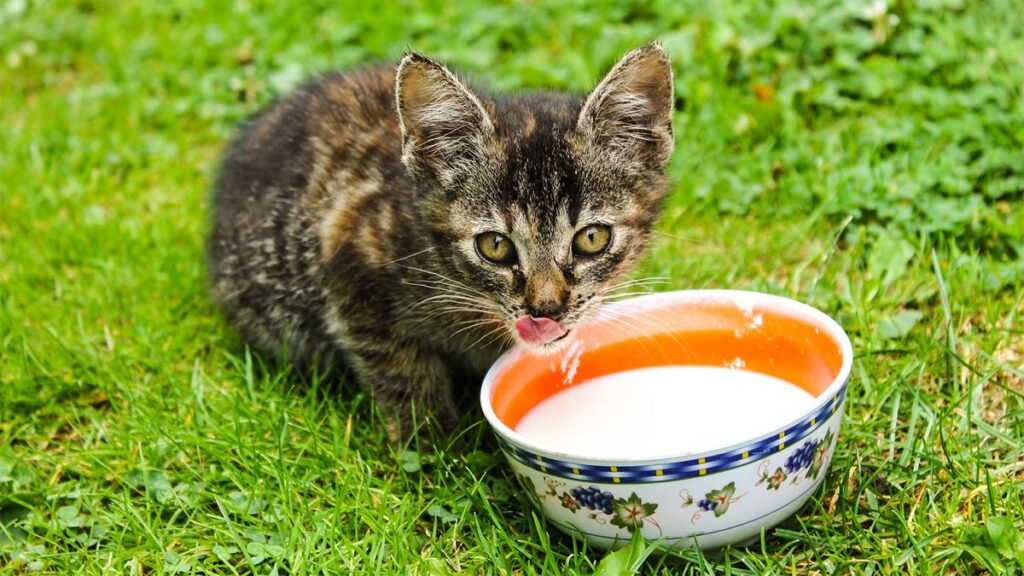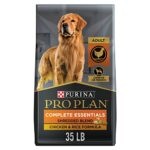A simple home remedy for diarrhea in cats is providing a bland diet of boiled chicken and rice. Ensure they stay hydrated by offering small amounts of water frequently.
Dealing with a cat suffering from diarrhea can be stressful for both the pet and the owner. It’s crucial to address this common issue promptly to prevent dehydration and further health complications. A mild, easily digestible diet temporarily soothes the digestive system and aids recovery.
Small, frequent servings can help stabilize your cat’s digestion. Keeping fresh water available to encourage hydration is also essential. While home remedies can be effective for mild cases, persistent symptoms require veterinary attention to rule out serious conditions. Always monitor your cat’s health and consult a professional if symptoms persist or worsen.
:strip_icc()/diarrhea-in-kittens-4165149_V1-254867adda4b473aa2084b6621974610.png)
Credit: www.thesprucepets.com
Introduction To Feline Diarrhea
Introduction to Feline Diarrhea: A common but distressing issue for many cat owners, feline diarrhea can be a messy indicator of your pet’s health. Whether it’s a result of dietary indiscretion or something more serious, understanding the basics of diarrhea in cats is crucial for maintaining their well-being. Let’s explore the common causes and know when it’s time to consult a veterinarian.
Common Causes
Several factors can upset a cat’s digestive system:
- Dietary changes: Sudden food switches can trouble a cat’s stomach.
- Intolerances: Cats may react to certain ingredients in their food.
- Infections: Viral or bacterial infections can lead to diarrhea.
- Parasites: Worms or protozoa like giardia can disrupt digestion.
- Chronic diseases: Conditions like hyperthyroidism or IBD affect bowel movements.
- Toxins: Ingesting poisonous substances can cause severe diarrhea.
When To See A Vet
Observe your cat closely for these signs:
- Persistent diarrhea: Lasting more than 24 hours needs attention.
- Blood in stool: This could indicate a serious condition.
- Lethargy: A lack of energy combined with diarrhea is worrying.
- Vomiting: Together with diarrhea, it could lead to dehydration.
- Loss of appetite: If your cat is not eating, it’s time for a vet visit.
- Abdominal pain: Discomfort or pain in the belly is a red flag.
Remember, timely intervention can save your cat from further discomfort or more serious health issues. If any of these symptoms appear, contact your vet immediately.
Hydration: The First Line Of Defense
Hydration: The First Line of Defense is crucial when dealing with diarrhea in cats. Diarrhea can lead to dehydration quickly, especially in small or young cats. Providing your cat with constant access to clean water is essential. Sometimes, water alone isn’t enough, and special rehydration solutions may be necessary. Let’s explore the importance of water and rehydration solutions to help your feline friend bounce back.
Importance Of Water
Water maintains your cat’s health. It helps their body recover. Cats with diarrhea lose a lot of fluids. To prevent dehydration, always ensure they have water available. Signs of dehydration include lethargy, dry gums, and decreased skin elasticity. Encourage your cat to drink. You might need to offer water from your hand or use a syringe.
Rehydration Solutions
When water isn’t enough, rehydration solutions can help. These solutions have electrolytes and minerals to restore balance. You can find them in pet stores or make them at home. For homemade solutions, mix:
- 4 cups of water
- 1/2 teaspoon of salt
- 2 tablespoons of sugar
Always consult your vet before offering these solutions. They can guide you on the right amount to give. Remember, never give human diarrhea medicine to cats. It can harm them.
| Ingredient | Amount |
|---|---|
| Water | 4 cups |
| Salt | 1/2 teaspoon |
| Sugar | 2 tablespoons |
Dietary Adjustments For Diarrhea
When your furry friend suffers from diarrhea, simple dietary changes can make a big difference. Let’s explore how a temporary shift to a bland diet can provide relief for your cat’s digestive system.
Bland Diet Basics
A bland diet helps calm your cat’s stomach. Start with small, frequent meals. Think of it as a reset for their digestive tract. The key is easy-to-digest food that’s low in fat.
- Boiled chicken: Skinless, unseasoned, and finely shredded.
- White rice: Plain and cooked soft.
- Pumpkin: Pure, not pie filling, aids in digestion.
Offer these foods for a few days. Then, gradually mix in their regular diet.
Foods To Avoid
Not all foods are safe for a cat with diarrhea. Some can worsen the problem.
- Dairy products: Many cats are lactose intolerant.
- Fatty foods: Hard to digest, can trigger upset stomach.
- Raw food: Risk of bacteria and parasites.
Stick to the bland diet plan. Avoid treats and human food during this time.

Credit: m.youtube.com
Probiotics: Restoring Gut Health
Probiotics: Restoring Gut Health is a key focus when your feline friend suffers from diarrhea. These friendly bacteria play a crucial role in maintaining a healthy digestive system. Let’s explore how incorporating probiotics can benefit your cat’s gut health.
Benefits Of Probiotics
Probiotics offer numerous advantages for your cat’s digestive tract. They help balance the gut microbiome, which is vital for digestion and overall health. Here are some key benefits:
- Enhanced Digestive Function: Probiotics aid in breaking down food and absorbing nutrients.
- Boosted Immune System: A healthy gut supports the immune system to fight off infections.
- Reduced Diarrhea: Probiotics can alleviate the frequency and severity of diarrhea episodes.
Natural Sources
Your cat can get probiotics from various natural sources. These include:
| Source | Probiotic Content |
|---|---|
| Fermented Goat Milk | Rich in natural probiotics |
| Plain Yogurt | Contains live cultures |
| Probiotic Supplements | Specifically designed for feline gut health |
Always check with a vet before adding new foods to your cat’s diet.
Pumpkin: A Natural Remedy
Is your cat suffering from diarrhea? Pumpkin might be a simple, natural solution to help regulate your furry friend’s digestive system. This common kitchen ingredient is not only safe for cats but also effective in managing digestive distress.
Why Pumpkin Helps
Pumpkin is rich in fiber which aids in digestion. The soluble fiber in pumpkin absorbs excess water, which helps to firm up your cat’s stool. Additionally, pumpkin is a good source of essential nutrients such as vitamin A, vitamin C, and potassium which support overall health.
How To Serve Pumpkin
Introducing pumpkin to your cat’s diet is easy. Here are simple steps to follow:
- Choose plain canned pumpkin. Ensure it’s free from spices and additives.
- Start with small amounts. Mix a teaspoon of pumpkin into your cat’s regular food.
- Monitor your cat’s reaction. Some cats might need time to adjust to the new flavor.
Always consult your vet before making dietary changes to ensure it’s safe for your specific pet’s health needs.
Herbal Remedies To Consider
Exploring herbal remedies can offer gentle relief for your cat’s diarrhea. Natural options are often safe and effective. Here, we look at two popular herbs.
Slippery Elm Bark
Slippery elm bark soothes the digestive tract. This herb forms a gel-like substance in the intestines. It helps reduce irritation by coating the lining.
- Mix fine powder with cold water.
- Give a small amount before meals.
Chamomile
Chamomile is known for its calming effects. It can help relax spasms in the digestive system. This makes it a good choice for upset stomachs.
- Brew a weak tea using chamomile flowers.
- Let it cool and give a few teaspoons to your cat.
| Herb | Form | Dosage |
|---|---|---|
| Slippery Elm Bark | Powder | 1/4 tsp mixed with water |
| Chamomile | Tea | 2-3 tsp of cooled tea |
The Role Of Fasting
Fasting can be a crucial step in helping a cat with diarrhea. It allows their digestive system to rest. This break can help the gut recover from whatever is causing the trouble. Always consult a vet before starting a fast.
How Fasting Helps
When a cat stops eating, their stomach and intestines get a chance to heal. The body focuses on repairing instead of digesting. This can lead to quicker recovery. Fasting also helps to clear out any bad bacteria or food that may have caused the issue.
Fasting Duration
Fasting should be short for cats, as they can develop liver issues if they do not eat. A 24-hour fast is often recommended for adults, but only 12 hours for kittens. Always give access to clean water during this time.
This is an example of how to present information in a table. In this case, the table is not necessary.
Always monitor your cat during a fast. If symptoms worsen, contact your vet immediately. After fasting, reintroduce food slowly with easy-to-digest options.
Activated Charcoal: Usage And Precautions
Cats sometimes suffer from diarrhea, which can be distressing for both the pet and the owner. Among home remedies, activated charcoal stands out for its potential to help. It’s important to understand how it works and the appropriate dosage before administering it to your furry friend.
How It Works
Activated charcoal works by absorbing toxins and harmful substances in the stomach and intestines. This absorption helps to ease diarrhea symptoms. It’s a form of carbon processed to have small, low-volume pores. These pores increase the surface area available for chemical reactions and absorption.
Appropriate Dosage
The right dosage of activated charcoal is crucial. For cats, it is generally recommended to give 1 gram per pound of body weight. Administer every 4-6 hours, depending on the severity of diarrhea.
Consult a vet before giving activated charcoal to your cat. They can provide a precise dosage and frequency.
| Cat’s Weight (lbs) | Dosage (grams) |
|---|---|
| 5 | 5 |
| 10 | 10 |
| 15 | 15 |
Never use activated charcoal that is meant for other purposes. Only use charcoal designed for medical use.
Observe your cat closely after administration. If symptoms persist, seek immediate veterinary care.
Maintaining A Clean Environment
A clean environment plays a vital role in managing diarrhea in cats. It helps prevent the spread of infections and supports recovery. By focusing on hygiene and disinfection, cat owners can create a safe, healthy space for their feline friends.
Litter Box Hygiene
Keeping the litter box clean is crucial for cats with diarrhea. Dirty litter boxes can harbor bacteria and parasites, worsening symptoms. Follow these steps for optimal litter box hygiene:
- Scoop daily to remove waste and keep the area clean.
- Use clumping litter to easily spot and remove soiled areas.
- Replace litter once a week to maintain freshness.
- Wear gloves while cleaning to protect against germs.
Disinfection Practices
Disinfecting your cat’s space is essential to kill germs that cause diarrhea. Use these tips for effective disinfection:
- Choose pet-safe disinfectants for cleaning.
- Clean bowls and toys regularly to kill germs.
- Disinfect the litter box during each litter change.
- Wipe down surfaces your cat frequently touches.
Remember, a clean environment supports your cat’s health and helps manage diarrhea. Practice these hygiene and disinfection tips for a happy, healthy pet.
Homemade Electrolyte Solutions
When your furry friend suffers from diarrhea, hydration is key. A homemade electrolyte solution can help replenish lost fluids and minerals. Let’s explore simple, cat-safe recipes and tips for administration.
Simple Recipes
Here are two easy-to-make electrolyte solutions to support your cat’s recovery:
-
Basic Electrolyte Mix:
- Mix 4 cups of warm water with 1 tablespoon of sugar and 1 teaspoon of salt.
- Stir until dissolved.
-
Broth-Based Solution:
- Combine 4 cups of unsalted chicken broth with 1 teaspoon of sugar and a pinch of salt.
- Ensure it’s cool before serving.
Both recipes are gentle on your cat’s stomach and provide essential hydration.
Administration Tips
Follow these tips to ensure your cat safely receives the electrolyte solution:
- Use a Syringe: Administer the solution with a clean syringe for precise control.
- Small Amounts: Offer small amounts frequently to avoid overwhelming your cat’s stomach.
- Monitor Intake: Keep track of how much your cat drinks to avoid overhydration.
- Warm the Solution: Serve the solution at room temperature to make it more appealing.
- Consult a Vet: Always talk to a vet before trying new treatments.
With these recipes and tips, you can help your cat through diarrhea safely at home.
Rice Water: A Soothing Solution
When your furry friend suffers from diarrhea, rice water can be a gentle remedy. This simple solution, often overlooked, is a traditional fix for upset feline stomachs. Let’s explore how to prepare rice water and its benefits for cats.
Preparation
Making rice water is easy and requires only two ingredients – rice and water. Here’s a quick guide:
- Measure one cup of white rice; brown rice is not recommended.
- Rinse the rice to remove any impurities.
- Boil four cups of water in a pot.
- Add the rinsed rice to the boiling water.
- Simmer for 20 minutes or until the water turns cloudy.
- Strain the rice, keeping the water, and allow it to cool.
Once cool, offer a small amount of rice water to your cat. It should be room temperature for your cat’s comfort.
Benefits
- Hydration: Rice water helps keep cats hydrated, which is crucial during diarrhea.
- Gentle on stomach: It’s bland and less irritating for sensitive stomachs.
- Energy: Provides a bit of energy from the carbohydrates in rice.
Remember, rice water is a temporary aid and not a cure. If your cat’s diarrhea persists, consult a veterinarian. Always ensure fresh water is available alongside rice water.

Credit: www.holistapet.com
Importance Of Gradual Diet Reintroduction
After a bout of diarrhea, your cat’s digestive system needs time to heal. A sudden return to regular food can trigger more digestive upset. Gradual diet reintroduction helps the gut adjust without causing extra stress. This process ensures your cat gets back to their favorite meals safely and comfortably.
Step-by-step Process
Let’s guide your cat back to health with these simple steps:
- Fast your cat for 12-24 hours after diarrhea stops. This gives the gut time to rest.
- Next, offer a bland diet such as boiled chicken or white fish. No skin or bones!
- Start with small portions, gradually increasing them over a few days.
- Slowly mix in regular food with the bland diet over the next week.
- Keep water available at all times to prevent dehydration.
Monitoring For Reactions
Watch your cat closely as you reintroduce their normal diet. Look for signs of:
- Returning diarrhea or vomiting.
- Loss of appetite or refusal to eat.
- Lethargy or changes in behavior.
If you notice any of these symptoms, consult your vet. They may suggest a special diet or further tests.
Remember, patience is key during diet reintroduction. Your cat’s health is worth the time and care.
Essential Oils: Are They Safe?
When a beloved feline friend suffers from diarrhea, pet owners often seek home remedies. Essential oils have gained popularity for various uses. But are they safe for cats? This section delves into the world of essential oils and their use for feline health.
Recommended Oils
Some essential oils can be beneficial for humans, yet not all are safe for cats. Cats have a unique metabolism. It makes them particularly sensitive to certain compounds in essential oils. Let’s explore oils often recommended for cats:
- Chamomile: Soothing for stress
- Frankincense: May support immunity
- Ginger: Known to aid digestion
Safety Guidelines
Essential oil safety is crucial for cats. Their sensitive nature requires strict guidelines. Below are key points to ensure your cat stays safe:
- Dilute properly: Use a high dilution ratio. One drop of essential oil to 50 drops of carrier oil is a good start.
- Avoid diffusers: Cats cannot escape the oils in the air. This could lead to overexposure.
- Consult a vet: Always talk to a professional before using oils on or around your cat.
Acupressure For Digestive Relief
When your feline friend suffers from diarrhea, you may seek gentle, non-invasive remedies. Acupressure offers a holistic approach. It can help soothe your cat’s digestive issues. This ancient technique involves applying pressure to specific body points. It promotes healing and relief.
Techniques
Acupressure is similar to acupuncture but without needles. Here’s how you can perform it:
- Find the Pressure Points: Research or consult a vet to locate the correct spots.
- Gentle Pressure: Use your fingertip to apply soft pressure in a circular motion.
- Consistency: Perform the technique several times a day for short periods.
Common points for digestive relief are located around the belly and hind legs. By pressing these spots, you can help your cat relax and possibly alleviate discomfort.
Precautions
While acupressure is safe, there are important precautions:
| Precaution | Details |
|---|---|
| Correct Identification: | Ensure you have the right pressure points. |
| Pressure: | Apply gentle pressure to avoid discomfort. |
| Duration: | Limit sessions to a few minutes to prevent overstimulation. |
| Observation: | Watch your cat’s reaction closely. Stop if distressed. |
Always consult with a vet before starting a new treatment. This ensures it’s suitable for your cat’s condition.
When To Revisit The Vet
It’s important to know when to revisit the vet if your cat has diarrhea. Home remedies can help, but professional advice is crucial when symptoms persist.
Persistent Symptoms
If your cat’s diarrhea continues despite home care, see the vet. Look for these signs:
- Diarrhea lasts more than two days
- Blood in stool
- Loss of appetite
- Weakness or lethargy
These symptoms mean your cat needs a vet’s help fast.
Follow-up Care
After visiting the vet, follow all the instructions they provide. This ensures your cat recovers well. Key points include:
- Medication administration
- Diet changes
- Scheduled re-checks
Keep all follow-up appointments to track your cat’s health.
Frequently Asked Questions
What Should I Give My Cat To Stop Diarrhea?
To stop your cat’s diarrhea, give them a bland diet like boiled chicken and rice. Ensure they stay hydrated. Consult your vet for specific treatments or medications.
What Can I Give My Cat For Diarrhea Diy?
For cat diarrhea, provide a bland diet like boiled chicken or white fish. Ensure access to fresh water and consider probiotics. Consult a vet if symptoms persist.
How Can I Firm Up My Cat’s Stool?
To firm up your cat’s stool, gradually introduce a high-fiber diet and ensure proper hydration. Consult a vet for specific probiotics or dietary adjustments tailored to your cat’s needs.
What Medicine Stops Diarrhea For Cats?
Anti-diarrheal medications like loperamide can help stop diarrhea in cats. Always consult a vet before administering any medication.
What Causes Diarrhea In Cats?
Diarrhea in cats can result from dietary indiscretion, infections, intestinal parasites, or chronic diseases like hyperthyroidism or IBD.
How Can I Treat My Cat’s Diarrhea Naturally?
Providing a bland diet, ensuring proper hydration, and adding prebiotic or probiotic supplements can help treat your cat’s diarrhea at home.
Conclusion
Caring for your feline friend during a bout of diarrhea can be challenging. Yet, with these simple home remedies, you can provide relief and comfort. Remember, persistent symptoms warrant a vet visit. For now, embrace these gentle solutions to soothe your cat’s distress and promote a healthy, happy companion.







